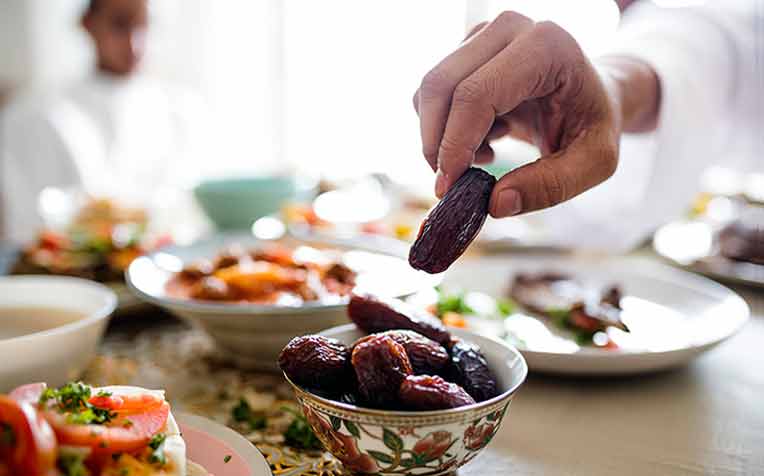
The
Department of Dietetics at
Singapore General Hospital (SGH), a member of the
SingHealthgroup, offers tips for healthier fasting. (iStock photo)
1. Don't skip
Suhoor (pre-dawn meal)
Although skipping
Suhoor to have uninterrupted sleep may sound appealing, you shouldn't. As the saying goes, 'breakfast is the most important meal of the day'. And during Ramadan, it becomes even more important!
Skipping
Suhoor (pre-dawn meal) prolongs the fasting period as your body will need to rely on the previous meal to provide you with all the nutrients and energy until
Iftar (dinner). Due to the longer hours of fasting, you are more likely to feel dehydrated and tired during the day. Furthermore, skipping
Suhoor also encourages overeating during
Iftar, which can cause unhealthy weight gain.
Related article:
Best foods for
Suhoor (pre-dawn meal) and
Iftar (dinner)
2. Don't overeat during
Iftar (dinner)
Just as it is not advisable to skip
Suhoor (pre-dawn meal) overeating when it is time to break the fast can harm your body.
Iftar (dinner) should be a well-balanced, nutritious meal and not a feast. Overeating and excessive consumption of high-fat foods in particular may result in indigestion and weight gain. Slow down and enjoy each mouthful of your food.
3. Avoid eating fried foods, salty foods and high-sugar foods
There is a temptation during fasting to want to reward yourself with rich, greasy, fried and sugary dishes come meal time. While these foods make you feel good in the short run, they can make fasting more difficult.
Related article:
Taking medication during Ramadan
Aside from the unhealthy weight gain, consuming fatty and sugary foods can also cause sluggishness and fatigue. In addition, you should limit your intake of salt, especially during
Suhoor (pre-dawn meal) as this increases thirst.
Instead, try incorporating foods from all the major food groups including fruit and vegetables, rice and alternatives, as well meat and alternatives. Consuming fibre-rich foods is also ideal as they are digested slower than processed foods so you feel full longer.
4. Drink as much water as possible
Drinking as much water as possible between
Iftar (dinner) and
Suhoor (pre-dawn meal) reduces your risk of dehydration during fasting.
Make every effort to drink at least 8 glasses of fluids daily before dawn and after sundown. Water is the best choice. Ideally, you should also cut down on caffeinated drinks as these have a diuretic effect and promote fluid loss.
Related article:
Have diabetes and fasting? Our doctor advises how to do it safely
--
Articles on
HealthXchange.sg are meant for informational purposes only and cannot replace professional surgical, medical or health advice, examination, diagnosis or treatment.